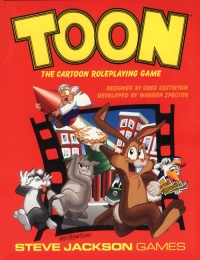Aberzanzorax
Hero
A "fix"?
A "fix"?
I was thinking about this, and the main problem with hp loss = wounds, at least in 3e, is the fairly-opposite understanding of healing magic (e.g. cure light wounds heals a smaller percentage of wounds on a lvl 10 guy than a lvl 1 guy).
So, I wonder, if it might be a narrative "fix" to consider/describe level 1 hp to be "wound related" and all other hp to be "verve related" in 3e. I think this might address that issue.
Cuts on a lvl 10 warrior would be very small indeed, so small as to not be substantial wounds (more like scrapes...e.g. in the example of a poison sword poisoning him, a la Hamlet's end)...UNTIL he was at or below his level one number of hp, at which point, the wounds would be described as if they were the same as if he were a first lvl fighter (6 hp is a giant gash, 15 hp is a gaping chest wound).
Might this address some/the rest/all of the wonkiness of 3e hp?
If it does, does it also address some/the rest/all of the wonkiness of 4e hp?
A "fix"?
I was thinking about this, and the main problem with hp loss = wounds, at least in 3e, is the fairly-opposite understanding of healing magic (e.g. cure light wounds heals a smaller percentage of wounds on a lvl 10 guy than a lvl 1 guy).
So, I wonder, if it might be a narrative "fix" to consider/describe level 1 hp to be "wound related" and all other hp to be "verve related" in 3e. I think this might address that issue.
Cuts on a lvl 10 warrior would be very small indeed, so small as to not be substantial wounds (more like scrapes...e.g. in the example of a poison sword poisoning him, a la Hamlet's end)...UNTIL he was at or below his level one number of hp, at which point, the wounds would be described as if they were the same as if he were a first lvl fighter (6 hp is a giant gash, 15 hp is a gaping chest wound).
Might this address some/the rest/all of the wonkiness of 3e hp?
If it does, does it also address some/the rest/all of the wonkiness of 4e hp?



